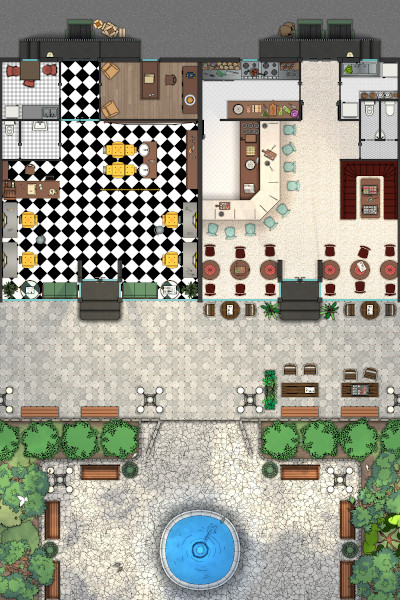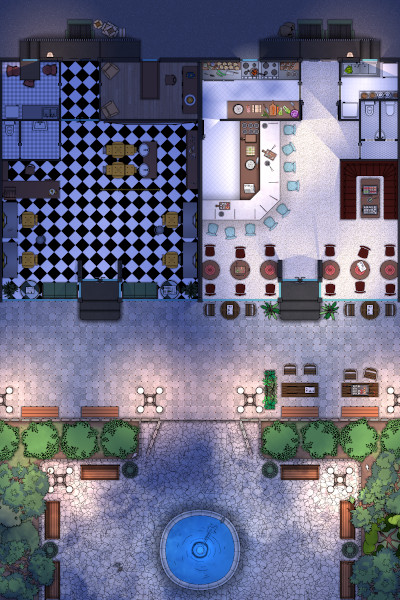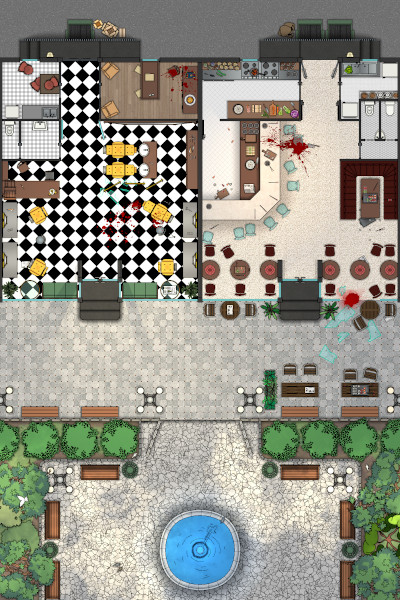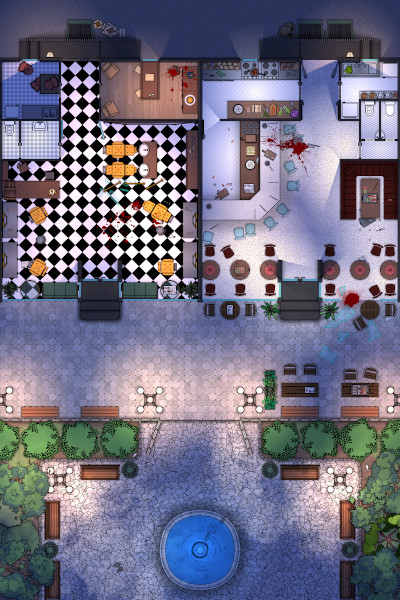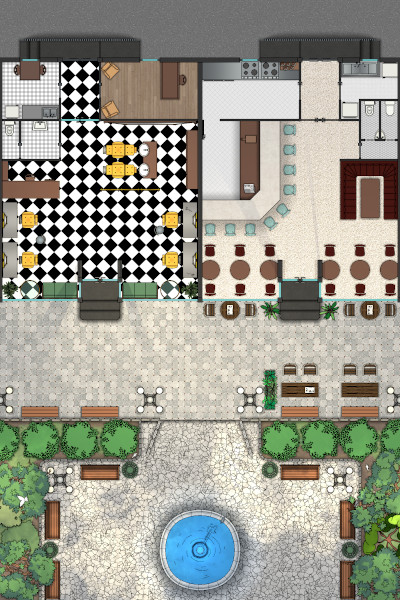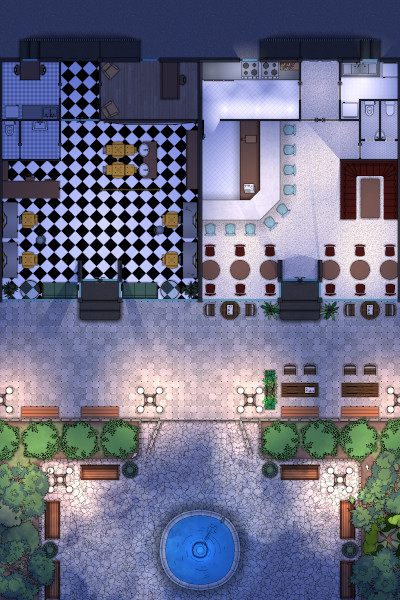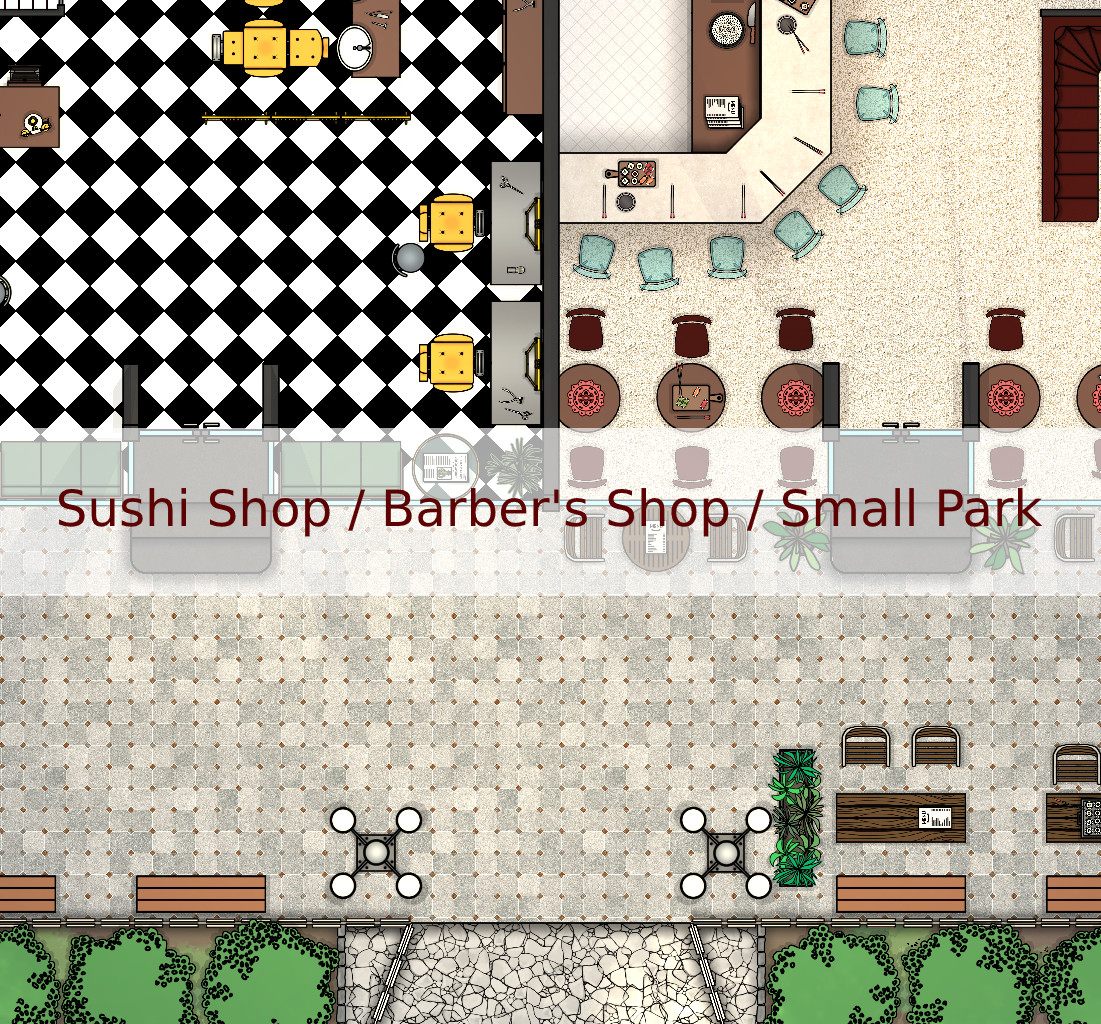Why does the barber refuse certain customers while the sushi chef serves dishes that aren't on any menu, and what connects these three locations through those shared basement spaces? Which park benches face the shops at angles that provide perfect surveillance, and why do all three businesses close simultaneously during the full moon? What's buried beneath that small gazebo where the sight lines from both shops converge perfectly?
Follow Cthulhu Architect on BlueSky!That first bite of fat-streaked tuna sushi was a culinary epiphany. It was as though I had been wearing a mitten on my tongue all those years and had suddenly taken it off. The velvety fish had a rare beef-like core surrounded by a creamy richness from the marbled fat. The lightly vinegared rice and earthy soy were like exclamation points at the end of a perfect sentence. The wasabi added a final unexpected prickle of heat that kindled my desire for more. That night I promised myself that one day I would eat sushi in Japan.
― Victoria Abbott Riccardi, Untangling My Chopsticks: A Culinary Sojourn in Kyoto
Kenji Nakamura had always prided himself on serving the freshest fish in the city. His small sushi shop, tucked between a laundromat and a used bookstore, had earned a devoted following among those who appreciated authenticity. The fish arrived daily from suppliers he’d cultivated over decades, their eyes still clear, their flesh firm and sweet.
It was Mrs. Chen who first mentioned the dreams. She’d been coming in twice a week for months, always ordering the same thing: salmon sashimi and a bowl of miso soup. “Such vivid dreams,” she told him one evening, her chopsticks trembling slightly. “Swimming in dark waters, breathing through gills I don’t have. The pressure… it’s magnificent.” Her smile seemed too wide, her teeth too sharp in the amber light.
Kenji noticed other changes too. Mr. Hoffman’s skin had taken on a peculiar sheen, almost iridescent when he moved beneath the restaurant’s lights. The young couple who came in every Friday had stopped blinking as frequently, their eyes now holding the same glassy stare as the fish in his display case. They all spoke of the same dreams: vast underwater cities, ancient songs that vibrated through bone and sinew.
The supplier arrived as usual that Tuesday, but something was different about the fish. They looked normal enough — the same silver scales, the same cold flesh — but when Kenji held them, he could swear he felt a pulse beneath their skin. A rhythm that matched the strange new beating in his own chest. He prepared them anyway, his knife moving with practiced precision, but his hands shook as he arranged the cuts on their ceramic beds.
That night, as he cleaned his knives and prepared to close, Kenji caught his reflection in the polished blade. His pupils had grown larger, pupils that seemed to reflect depths that shouldn’t exist behind human eyes. He touched his neck absently and felt the tender ridges that had begun to form along his throat. The dreams were calling to him now too, promising transformation in the crushing embrace of lightless depths.
The last customer left at midnight, but the sushi shop remained open, its neon sign flickering like a beacon for those who had begun to change. In the kitchen, Kenji continued his work, preparing delicacies for patrons who no longer came for sustenance, but for communion with something vast and patient that swam in the spaces between dreams and hunger.
